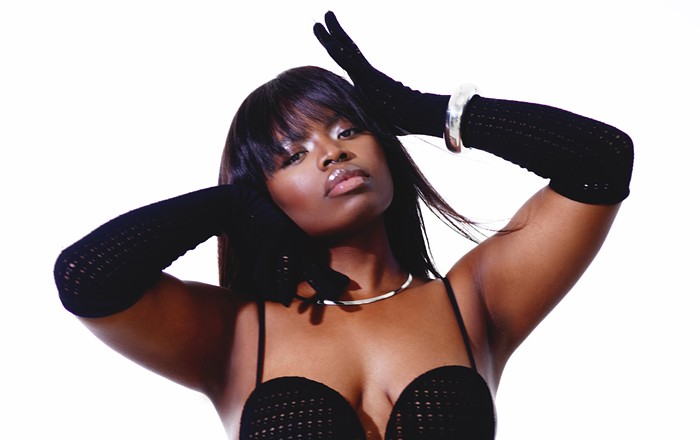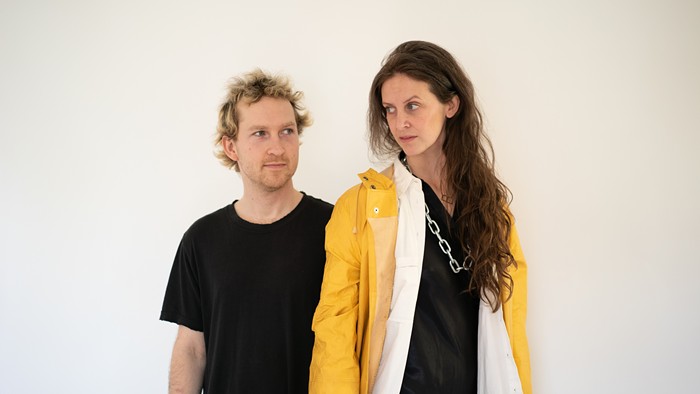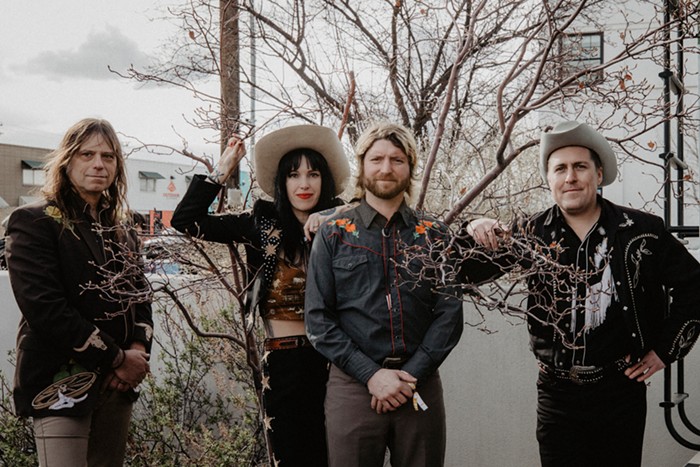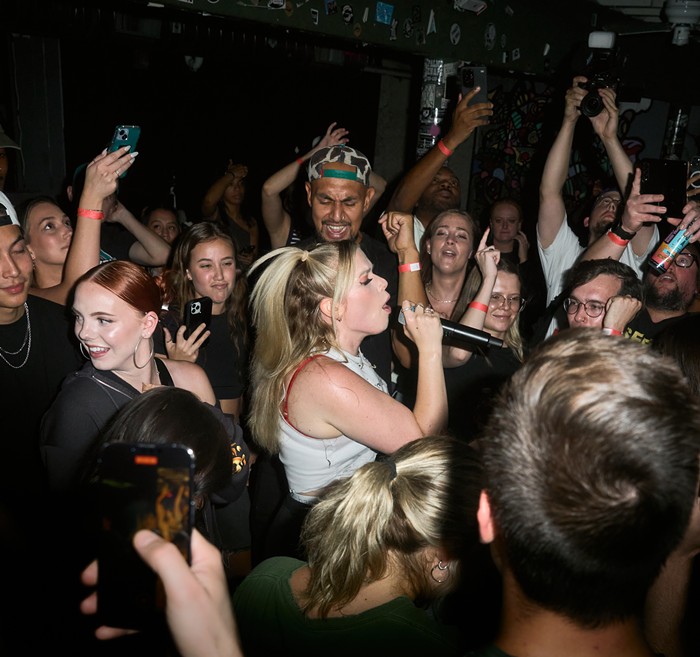It is 1994 and I am 20 years old. Chicago noise-rock icons the Jesus Lizard have begun a four-month tour in support of their latest Touch and Go Records full-length, Down. Next year, they will sign to Capitol Records, which will lessen their impact and lead to their 1999 breakup. But tonight, they will bludgeon us.
Diminutive ex-Texan David Yow mumbles about the "coeds" in attendance. In a flash, he hurls two cans of Budweiser at no one, anyone—hard. His bandmates—independent of the madman—launch their own bruising, metallic projectiles: "Destroy Before Reading," "Puss," and "Boilermaker." Everyone flinches when Yow picks up his mic stand and fakes a swing.
The sound is a rock blender on frappe—a whirling blade through the meat of Led Zeppelin, negative hardcore, pilfered blues, and music theory. Yow is swimming on the crowd. He is a poet strangled, true to his gurgling studio tracks, some of which were recorded in a trashcan. Guitarist Duane Denison turns the band's jazz-like spatial tone—itself a perversion in alt-rock—into a wall of shrieking treble, detonated with cruel chord changes, rather than the era's easy Mosh Here grunge-pedal stomp. Bolstered by menacing bassist David Sims and the hunched-over, last-of-the-Bonhams Mac McNeilly, the Jesus Lizard are incredible. For the first and probably last time in my life, I am sweating through my jeans.
I interviewed Yow in 2007. He was returning to music full time after seven years of photo retouching: movie billboards, DVD covers, vodka advertisements. "My work seems to have turned its back on me," he explained, "so I've forsaken it." He was the new member of proggy Los Angeles noise-rock band Qui, sharing vocal duties on an ambitious record. "After the Jesus Lizard broke up, I had no desire whatsoever to be in a band again," he said. "I wasn't looking for it. I wasn't seeking it out. I really felt like I was too limited as a vocalist to be in a band again, and if I was, I would feel like I would just be repeating myself." Instead, with Qui, Yow learned to sing.
I also interviewed Denison. The classically trained guitarist had jumped from one group to another since the breakup—Hank III to Tomahawk to U.S.S.A.—while also doing studio work for the likes of Will Oldham and Beverley Knight. To insure his child he took a job at Gibson Guitar in Nashville. Music was still his life. Why not reunite the Jesus Lizard? "If you get caught in that world, it's hard to get out," he said. "I really don't want to ever be one of these guys who just keeps playing their old songs forever."
The original lineup had received at least two offers to play before this year's reunion tour. But minor squabbling—not aversion to playing together—delayed the inevitable. "Touch and Go first called me and said, 'Hey, we're going to do this anniversary thing. Do you think the Jesus Lizard would play?'" Yow said, referring to the label's 25th anniversary festival in 2006. That year, Yow and Sims would instead reunite Scratch Acid, their pre-Jesus Lizard Texas outfit. "To be honest, I was sort of miffed about that," Denison said. When the members were asked to play All Tomorrow's Parties in England in 2007, Denison declined. "We won't play in front of our real friends and our fans here in Chicago, but we'll go across the ocean and go play for a bunch of art losers, so some snotty English magazines can write about us? No, I don't think I will."
Today, Yow worries less about repeating himself, and more about income after the Jesus Lizard reunion ends late next month in Chicago.
"I gotta figure out some way to make a living," he says, running errands near his home in Los Angeles. Before they disband again, what was it that made the reunion finally work?
"I didn't really feel like it was my place to veto it if three-fourths of the guys wanted to do it. And [it's] in conjunction with the reissues of the Touch and Go stuff," he says, pausing emphatically. "And the money is really good."
But no more studio albums, he adds. "I don't want to drag it out. I think that the novelty of the situation would wear off, and I think that we would probably be playing smaller places and probably be embarrassed and maybe humiliated. And I don't want that to happen."
Seeing them live will be good enough, suggests a live review I wrote of that show in '94: "I can honestly tell you that this was my favorite concert of all time."



















